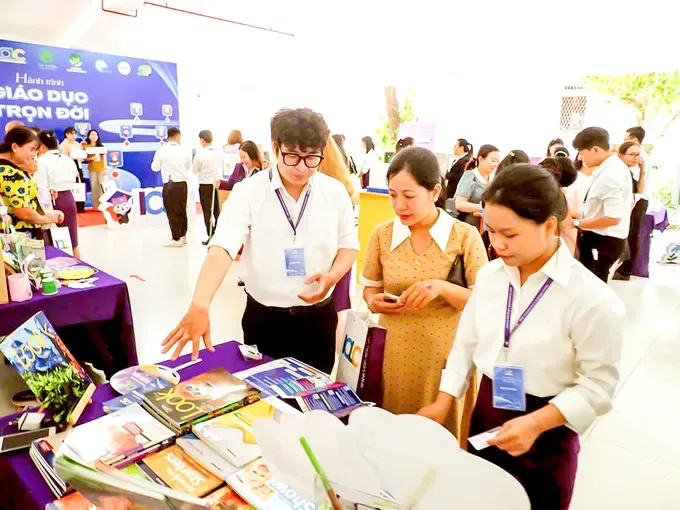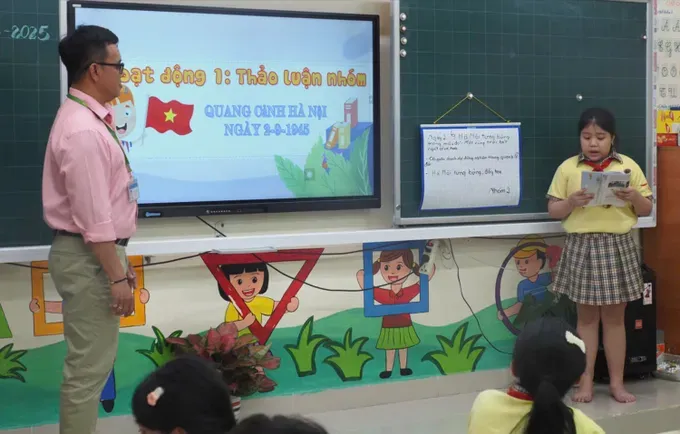
The modern classroom has profoundly changed. “Where students once came to class with notebooks and pens, they now just need a smartphone or a tablet to summarize the entire lesson”, observed Dr Luu Thi Thanh Mai, a lecturer at Saigon International University. This creates a new challenge. “During class, it’s very difficult for a teacher to know if a student is using their device for learning or for something else entirely.”
This sentiment is echoed by IT expert MSc Le Thi Hong Van, who points to a worrying trend. “Since ChatGPT became popular, many students have come to over-rely on it”, she noted. “I once gave students a simple calculation that could be done mentally in seconds, but none of them even tried. They just typed the command into ChatGPT for the answer. Over time, this habit fosters intellectual laziness and erodes their capacity for critical thinking.”
In this new landscape, educators can’t simply ban this technology. Instead, they must shift their mindset to become partners in their students’ use of AI. This means redesigning exams so that answers can’t be easily found with a simple query, and reorienting the focus toward the learning experience itself, rather than just evaluating students based on test scores.
Following directives from above, schools are providing teachers with opportunities to attend AI training courses. However, for now, these efforts often feel more like a campaign than a systemic shift, and they have yet to produce a profound transformation in teaching quality.
One junior high school vice principal in Tan Dinh Ward shared the reality on the ground: “Even when given access to new technology, some teachers use it effectively, while others are just scratching the surface.”
To make matters worse, school-level bureaucracy can be a roadblock. While some teachers are empowered to design their own lessons, others must pass their plans through multiple layers of approval, a process that stifles creativity and limits their engagement with new tech.

According to Nguyen Quang Anh, founder of the online learning platform Studify, it’s a mistake to think AI’s purpose is to make people lazy. He offers a powerful metaphor: “If you think of knowledge as a pile of pebbles, there will always be gaps between them. AI is the sand that can fill those gaps. The user has to decide how much ‘sand’ to use, but filling those spaces creates a much more solid foundation of skills and knowledge.”
In other words, AI isn’t a crutch; it’s a tool that can unlock greater proactivity and creativity, allowing individuals to produce work that once required a large team.
When comparing a human teacher to an AI, MSc Le Thi Hong Van argues there’s no contest. AI can process a command and deliver an answer in seconds, but it has no way of measuring whether that information is being used effectively. A human teacher, by contrast, is equipped with pedagogical skills and psychological insight. “A teacher can connect with their students, understand what they truly need, and recognize what might negatively affect them”, she said.
Dr Luu Thi Thanh Mai put it more simply: “No matter how advanced technology becomes, it will never possess human love and empathy.” In an era of rapid technological change, a teacher’s role is not to be replaced by technology, but to become its master. They must constantly learn and innovate to perfect their craft and meet the evolving demands of education.
The consensus among IT experts is clear. While AI-integrated teaching is not yet mandatory, it’s on the horizon. In the near future, they predict, teachers who don’t use AI will be gradually replaced by those who do, simply because of the gains in efficiency and effectiveness.
Pedagogical skill is no longer the sole determinant of a great teacher. Today’s educators must combine their professional competence with digital tools to enhance learning for their students, meeting the new digital competency framework outlined by the Ministry of Education and Training in Circular No.02/2025/TT-BGDDT (issued on January 24, 2025).
To spur this transition, the HCMC Department of Education and Training, in collaboration with the HCMC Digital Transformation Consulting and Support Center as well as AI Education (a Google for Education Partner), has launched the “Artificial Intelligence – Learning Without Limits” competition. The contest, which runs from August 12 to November 30, 2025, is open to all students and teachers in the city and aims to create a platform for sharing innovative teaching experiences.
























